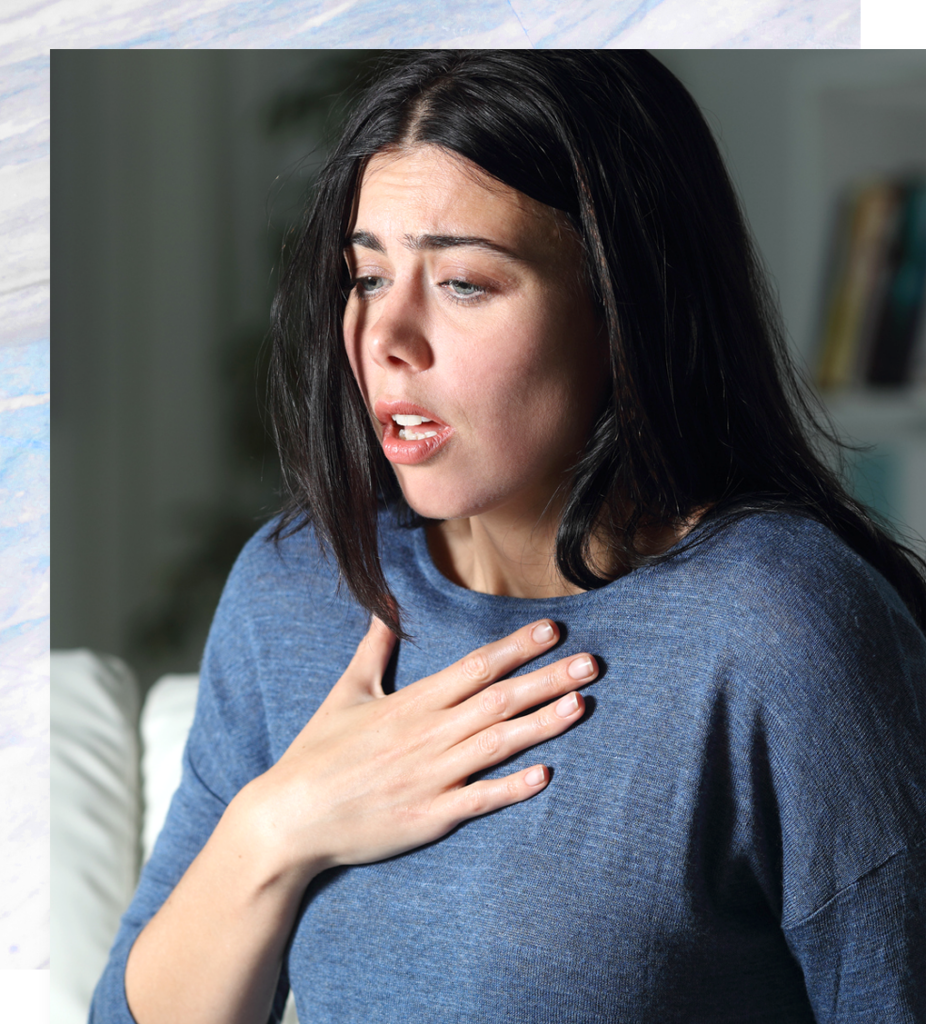Therapy for Anxiety
Anxiety can take on many forms, but a trained therapist can help.
Generalized Anxiety
Generalized Anxiety Disorder (GAD) is marked by excessive anxiety and worry about everyday life events. This may include worry about family, finances, work, relationships, and/or school. People with excessive anxiety tend to think in a way that exaggerates the likelihood of negative outcomes. The worry is aimed to prevent bad things from happening, but ends up causing distress that impairs one’s quality of life.
Cognitive-Behavioral Therapy (CBT) is a highly effective, evidenced-based treatment for GAD. CBT involves learning about the disorder, understanding the irrational thinking patterns that are occurring, and practice approaching one’s thinking and behaviors from a different point of view.


Panic Disorder
Panic attacks are sudden feelings of terror when there is no real danger. You may feel as if you are losing control and something bad is going to happen. Symptoms often include rapid heartbeat, chest or stomach pain, breathing difficulty, dizziness, and feeling hot or tingly. Panic attacks can happen anytime, anywhere, and without warning. It’s important to know that having a panic attack does not necessarily mean one will develop Panic Disorder. For some people, fear that they will have another panic attack takes over their life and greatly impacts their quality of life.
Cognitive-Behavioral Therapy is also used to treat Panic Disorder. CBT, in combination with exposure therapy, is often incredibly effective in reducing the frequency of panic attacks and fear of having a panic attack. Exposure therapy helps build confidence that one can tolerate the feelings of acute anxiety and panic, which leads to a much improved quality of life.
Health Anxiety
Health anxiety, also known as hypochondria, refers to obsessive and irrational worry about having a serious health condition or experiencing an acute medical crisis (ex. Heart attack, stroke, etc). The worry exists despite only minor or no qualifying symptoms existing. Many people with health anxiety engage in avoidance (resist seeing doctors for even routine check ups) or reassurance-seeking (frequent googling of symptoms, see doctors for all mild symptoms, etc). This worry can significantly impact one’s quality of life and daily functioning.
Cognitive-Behavioral Therapy (CBT) and Exposure and Response Prevention (ERP) are also used in treating health anxiety. Through gaining understanding of irrational thinking patterns, one is able to access their rational mind and engage in behaviors that align with rational thought versus excessive irrational worry. ERP, taken at a pace one is comfortable with, allows people to face their fears while increasing their sense of confidence. This allows people to live a values-based life rather than fear being in the driver’s seat.


Phobias
Phobias are overwhelming fears of an object, animal, place or situation. Just because you have a fear, does not mean you have a phobia. People with phobias will go to great lengths to avoid their fear, which can greatly impact ones functioning and quality of life. If you are suffering from a specific phobia (vomiting, spiders, heights, needles, etc), social phobia (social situations), or agoraphobia (leaving safe space) reach out for treatment that is effective and compassionate.
Treatment includes a combination of CBT, ERP, as well as mindfulness and Acceptance and Commitment Therapy (ACT). This combination embodies effective and compassionate treatment that allows people to find freedom from their fear.
Does this sounds like you?
If so, it may be time to reach out for professional support.
Please complete the form below to request a consultation or to send us any questions you may have about anxiety therapy.

Connect
LINDSAY MCGOVERN, LCSW
MON-FRI: 9:00 AM – 5:00 PM

